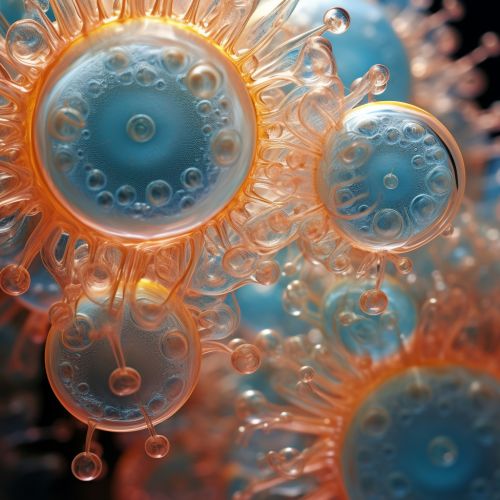Embryonic stem cells
Introduction
Embryonic stem cells (ESCs) are pluripotent stem cells derived from the inner cell mass of a blastocyst, an early-stage pre-implantation embryo. These cells are characterized by their ability to differentiate into any cell type, making them a powerful tool in the field of regenerative medicine.


Characteristics
Embryonic stem cells exhibit two distinctive properties: pluripotency and the ability to self-renew. Pluripotency refers to the cell's ability to differentiate into any cell type in the body, while self-renewal is the process by which stem cells divide to produce more stem cells.
Pluripotency
Pluripotency distinguishes embryonic stem cells from adult stem cells, which are multipotent and can only produce a limited number of cell types. The pluripotency of embryonic stem cells allows them to generate all cell types of the body, a trait that is exploited in scientific research and regenerative medicine.
Self-Renewal
Self-renewal is another defining characteristic of embryonic stem cells. This property allows them to maintain their undifferentiated state and proliferate indefinitely in culture. The mechanisms underlying self-renewal are complex and involve a network of genes and signaling pathways.
Derivation and Culture
Embryonic stem cells are derived from the inner cell mass of the blastocyst, a structure formed in the early stages of mammalian embryogenesis. The cells are then cultured in a laboratory, where they can proliferate indefinitely under suitable conditions.
Derivation
The process of deriving embryonic stem cells involves the isolation of the blastocyst, removal of the trophoblast cells, and culture of the inner cell mass cells. This process is technically challenging and raises ethical issues, as it involves the destruction of the embryo.
Culture
Once derived, embryonic stem cells can be cultured in the laboratory. They are typically grown on a layer of feeder cells, which provide necessary signals for the stem cells to remain undifferentiated and proliferate. The culture conditions must be carefully controlled to prevent spontaneous differentiation.
Applications
Embryonic stem cells have a wide range of applications in research and medicine due to their unique properties. They are used in developmental biology research, drug discovery, and regenerative medicine.
Research
In research, embryonic stem cells are used to study early human development, understand disease mechanisms, and test new drugs for safety and efficacy. They provide a valuable model system for studying the complex events that occur during human development.
Regenerative Medicine
In regenerative medicine, embryonic stem cells are used to generate cells and tissues that could potentially replace or repair damaged tissue in a variety of diseases and conditions, including spinal cord injury, heart disease, diabetes, and neurodegenerative disorders such as Parkinson's and Alzheimer's.
Ethical and Legal Issues
The use of human embryonic stem cells in research and therapy is controversial because it involves the destruction of human embryos. This raises complex ethical and legal issues that must be carefully considered.
